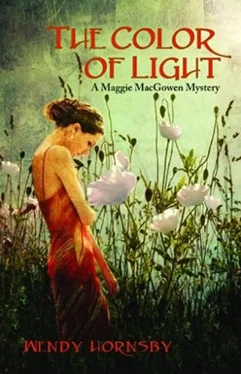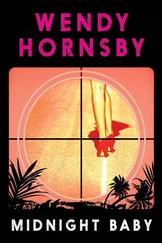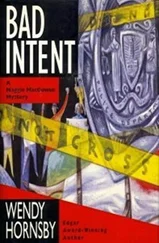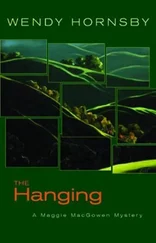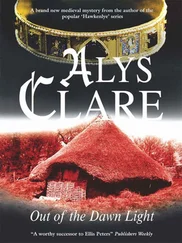Our parents, our teachers, Father John the parish priest-all the adults in our lives-sheltered us, as they saw fit, from the grim details about the hows and whats of Mrs. Bartolini’s passing. Like the real scoop on the mechanics of sex, we were left with little more than rumors and our naive imaginations to figure out what happened to her.
The word murder alone conjures up vivid pictures in the mind of a ten-year-old, but when I was ten, a sheltered little shit, I was so ignorant of the ways of the world beyond the protective bubble of my neighborhood that I could not have comprehended what was done to Mrs. Bartolini in the process of her dying even if someone had seen fit to tell me.
The squeaking of the back gate’s hinges interrupted my ruminations. I went over to the windows to see who was there.
Toshio Sato, my parents’ longtime yardman, pushed his cart of tools along the uneven brick walkway, stooping from time to time to snip faded roses from the flower border. For as long as I could remember, Mr. Sato had mown and edged half of the lawns on our street every second Monday, starting at the top of the hill and working his way down.
Mr. Sato stopped, took off his broad-brimmed straw hat and wiped inside the sweatband with a big white handkerchief. With his hat off, I could see that his thatch of black hair had become little more than feathery white wisps, but his back was still straight and his step was strong. For a man with his eightieth birthday in his rearview mirror, he looked very good.
Watching him, it occurred to me that he was only one of many grown-ups who routinely moved in and around our house and our neighborhood when I was a child, and to whom I generally paid scant attention. Other than Mr. Sato, there had been the dry cleaning deliveryman, Vera who cleaned our house twice a week and sometimes baby-sat me, Dad’s students and colleagues, Mom’s piano pupils, various friends and others. I wondered how many people also had access to the Bartolini house?
Taking the filled trash bag with me, I headed outside to speak with Mr. Sato. When I opened the back door, I startled him.
“Oh! It’s you, Maggie.” He patted his chest to show his heart was pounding.
“Sorry, Mr. Sato,” I said, pausing on the porch steps. “Did I scare you?”
“Little bit, yeah.” He pointed to his ears and shook his head. “Don’t hear so good no more. Your mom, she lets the door slam so I know she’s coming.”
“I’ll remember to do that,” I said, walking down the steps so that he didn’t need to crane his neck to talk to me. “How have you been?”
“Every day I find myself on this side of the grass and not under it, I think that’s gonna be a pretty good day.” He put his hat back on as he cocked his chin toward the flourishing vegetable patch growing in the sunny back end of the yard. He and Mom had planted it early in the spring before she went south to be near me during her knee replacement surgery and recovery. Before she decided to move down permanently. “Garden looks real good this summer. Too bad your mom’s missing it.”
“Thanks for keeping it up since she’s been gone,” I said. “Any ideas about what to do with all that zucchini?”
He laughed, shaking his head. “This time o’ year, everybody’s got too much zucchini. Gracie Nussbaum tried to give hers to the food bank, but they wanted some certificate from the Department of Ag about pesticides or something. Berkeley’s one crazy place, eh? Even the poor people eat organic.”
My eyes filled as I looked around the yard. Mr. Sato and Dad shared a love for roses and arguing politics; Mom grew herbs and vegetables. Roses and vegetables were planted in beds in the sunny south end of the yard. The shadier north end was a cool green lawn ringed by curved flower borders planted in the colors of the rainbow. And in the order of the colors of the rainbow: violet first, next indigo, then blue, a line of green, edged by yellow, then orange, and climbing the fence, vivid red bougainvillea. Dad, a physicist, planted the borders with the help of my older half sister and brother, Emily and Mark, fraternal twins, as a way of explaining to them the optical spectrum when they were taking their first physics classes. Later, Dad did the same exercise with me, this time planting flower borders on either side of the driveway in rainbow bands of color to explain the color spectrum of visible light to me. I still remember, though it has never come up in conversation since Dad’s lessons in the garden, that what we perceive as green has a maximum sensitivity-color perception-at about 540 terahertz. If I was, or am a nerd, I came by it naturally.
As a family, we spent a lot of time in the yard. I was glad when Mom decided that the house was too much for her to keep up alone, and that she was now living near me. But we would both miss that garden.
“So,” Mr. Sato said, face averted while I composed myself. “University gonna take over here, huh?”
“Yes,” I said. “They’re leasing the house for visiting faculty to use. The housing officer is coming by this afternoon to look around. Do you want me to ask her to continue with your service?”
“Oh, hell no.” He snorted, waving off the idea. “I retired ten, maybe twelve years ago. I’m living with my big-shot son and his family over in Menlo Park with all the other dot-com big shots. He’s so rich he hired his own Japanese gardener. No, honey, I just been coming over here to hang out with your mom and look after my roses.”
He took off his hat again and wiped the sweatband, a habit more than a necessity, I thought; it was a pleasantly warm day.
“Everything changes,” he said, casting a glance around. “Was a time I took care of half the yards on this street. Now most o’ the houses are full of strangers-you kids all grew up and went away-and some Mexican guy mows the lawns.”
We both turned when we heard the squeal of the gate hinges. Standing side by side, we watched in silence as someone pushed it open enough to peer around. I don’t know who was more surprised when a man’s face appeared, he or us. The newcomer froze, staring, but Mr. Sato acted quickly, grabbed a long-handled garden fork out of his tool cart and aimed the business end of it at the man.
“How many times you gotta be told?” he said, advancing a few feet closer to the gate. “You quit coming in here, buddy.”
“But I-”
The man took a half step further in, seemed confused or conflicted, or maybe he wanted to plead his case for being there. He looked weedy in frayed jeans, his brown hair pulled back from a receding hairline into an untidy ponytail. If I were homeless, I might find a yard with a nice garden full of food to be a good place to hang out, and I, too, might want to argue about being turned away.
When the man stayed his ground, not speaking, just staring, Mr. Sato pulled out his mobile phone. “You want me to call the cops again?”
“No, don’t,” he said, holding up his hands as he backed out the gate. “I’m going.”
“Persistent bastard,” Mr. Sato muttered as the gate latch snapped home. He put the fork away and rooted around in his cart for something. Search successful, he held up a hefty padlock for me to see. “I brought you this. Pest control.”
I followed him to the gate and watched him attach the padlock. When it was secure, he handed me a pair of keys on a wire ring.
“Thank you.” I put the keys into my pocket.
“Lock or no lock, watch out for that guy,” he said. “I don’t know what his deal is, but he seems bound and determined to hang out here. I’ve shooed him away a couple times. When I saw you come out the back door just now, I thought at first it was that asshole and he’d moved right in.”
“You called the police on him?”
Читать дальше
